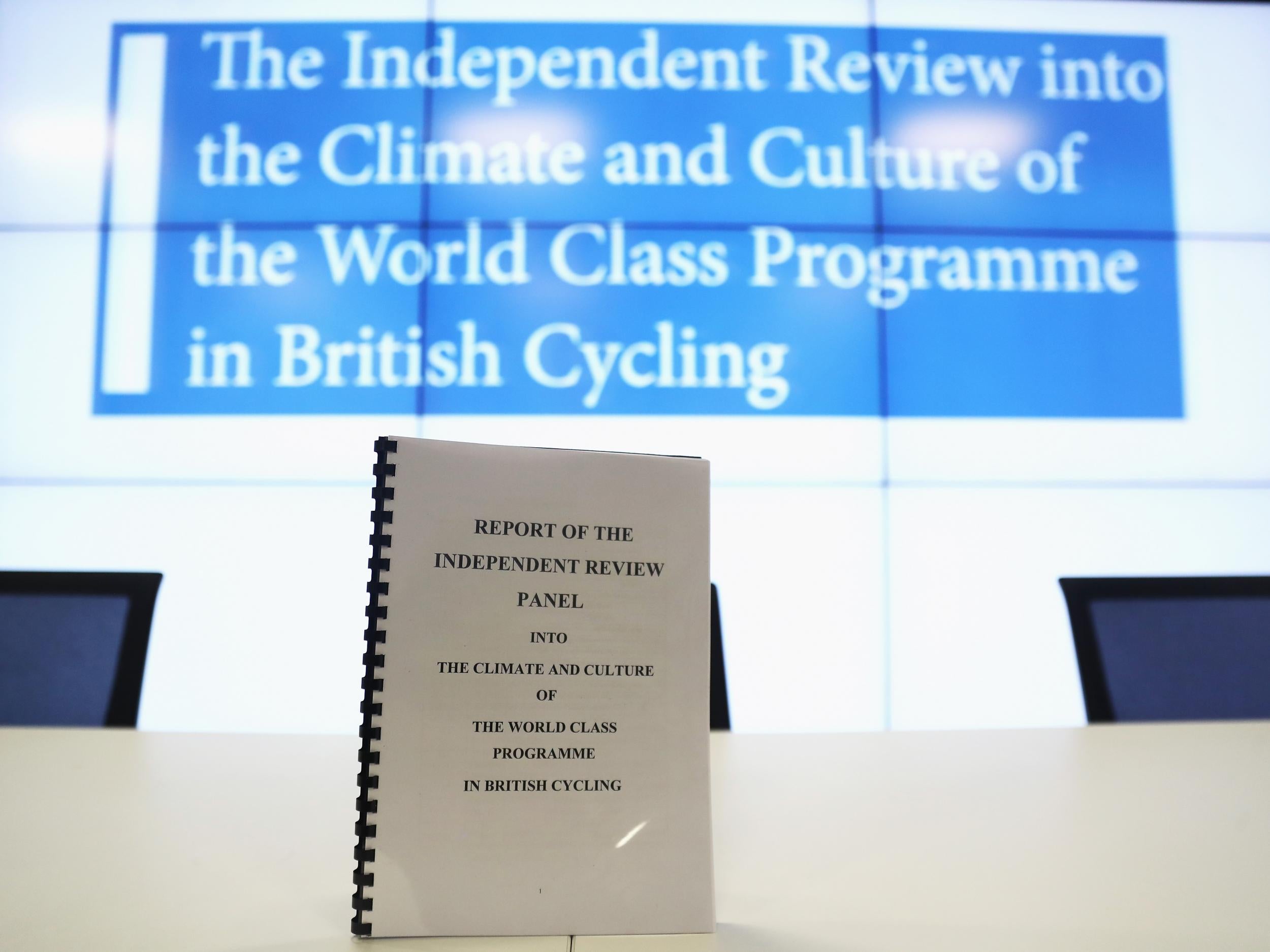Long awaited independent report into climate and culture of British Cycling accuses body of 'abrogation of duty'
The eagerly awaited independent review accuses British Cycling of failing to follow up on “hard-hitting” criticisms made of the world class programme back in 2012

British Cycling were accused of an “abrogation of duty” in failing to follow up on “hard-hitting” criticisms made of the world class programme back in 2012, by the long-awaited independent report into the climate and culture of their world class cycling programme.
The report was not as critical as a draft version written earlier this year and panel chair Annamarie Phelps had to insist on Wednesday that the final version was not a “whitewash”, although she did admit it had been diluted after the panel spoke to the individuals, such as Shane Sutton, who were in line for the harshest criticisms.
There are clear criticisms in the report of the world class programme (WCP), and how staff, led by Sutton, treated and spoke to athletes, especially between 2014 and 2016. The report states that there was a “sense of fear” among some WCP staff and athletes, that Sutton used “discriminatory language” and that some female riders said that they found the atmosphere “uncomfortable”.
Phelps said in a press conference on Wednesday morning that there were “fundamental behavioural issues” at the heart of the WCP and that there was “much fear and mistrust among staff based on perception of favouritism and privilege.”
However the wordings of the criticisms in the report are watered down from how they were in the draft version. There are no references to “a programme of bullying from leadership figures”, as there were in the draft. Rather than describing a “culture of fear” in the WCP, the report merely says that staff members referred to one. The report tends to repeat what it has been told rather than always drawing the firmest conclusion for itself.
Phelps admitted that these changes had been made after the process of ‘Maxwellisation’, the period when individuals criticised in the report were approached for their own reactions to the draft findings. “I accept that some of the emotive language has been removed,” Phelps said. “What the panel did when we went back was to look carefully at the evidence that we’d been given in the context of the Maxwellisation process.”
The removal of the word ‘bullying’ from the final draft raised eyebrows but Phelps said it was a fair record of the evidence. “The people we interviewed hardly ever used the word ‘bullying’,” she said. “we back at as panel, we thought it was better to speak about those specific behaviours than to use broad-brush terminology that hadn’t necessarily been used to us directly.”
Similarly the removal of Jess Varnish from the WCP, the situation that led to this whole enquiry, was not criticised in the same terms, as an ‘act of retribution’, in the final report as it was in a draft. “Post-Maxwellisation, other information came through and other views came through,” Phelps explained, “that meant that was questionable.”
The strongest criticism in the report did not concern coach behaviour between 2012 and 2016 as the failure of British Cycling to act on the King Report of 2012. That was a report, also published yesterday, into the behaviour of the WCP which made serious criticisms that were largely ignored.
The 2017 report states that British Cycling turned a blind eye to the King Report, leading to a worsening of the same problems over the next four years. “Hard-hitting conclusions in that report concerning behaviours within the WCP were not acted upon with necessary haste or focus by the BC [British Cycling] board,” the report said. Not addressing those “cultural and behavioural concerns” amounted to an “abrogation of duty” from the BC board was the report’s damning finding.
Ultimately the report argued that the WPC culture was counter-productive and that a happier culture could produce better results. “We have never promoted or condoned a win at all cost mentality or approach,” said Liz Nicholl, chief executive of UK Sport. “There have been questions about whether this is a crisis, and it is not a crisis in performance sport. It would be crisis if we weren’t taking action.”
Subscribe to Independent Premium to bookmark this article
Want to bookmark your favourite articles and stories to read or reference later? Start your Independent Premium subscription today.

Join our commenting forum
Join thought-provoking conversations, follow other Independent readers and see their replies